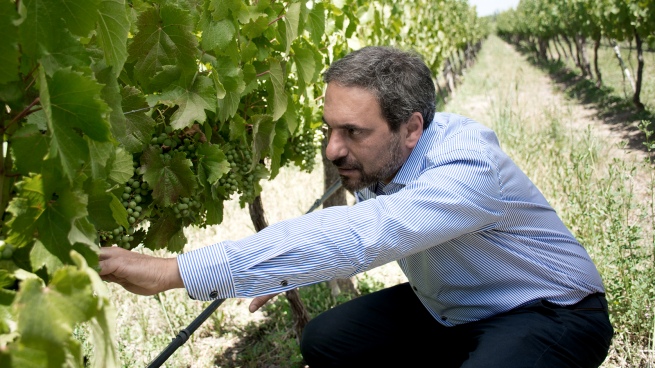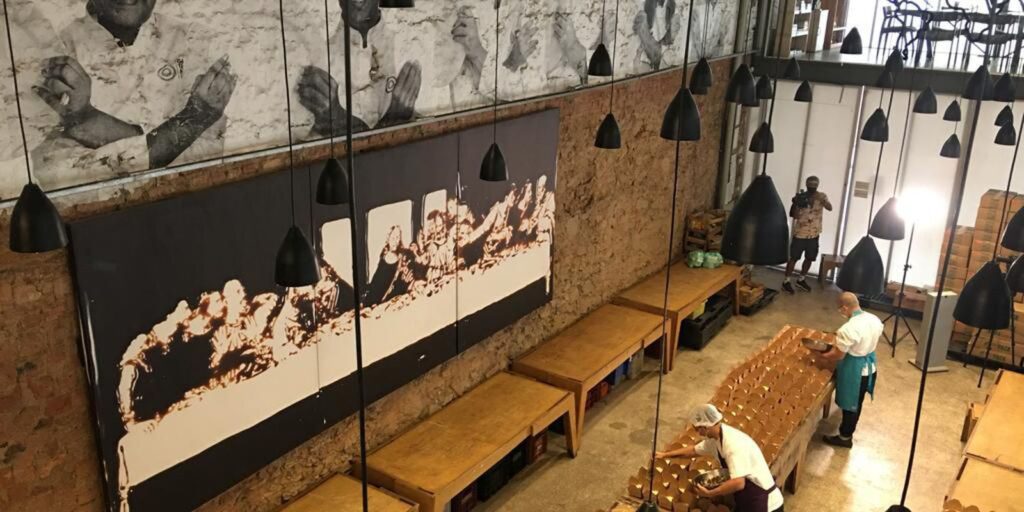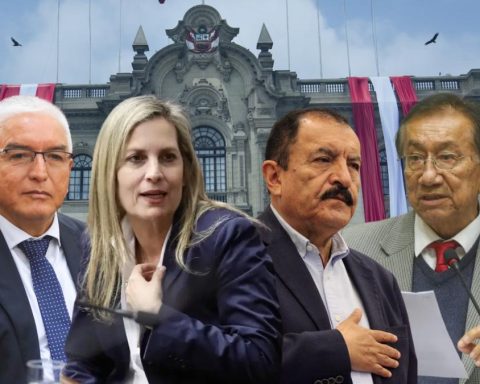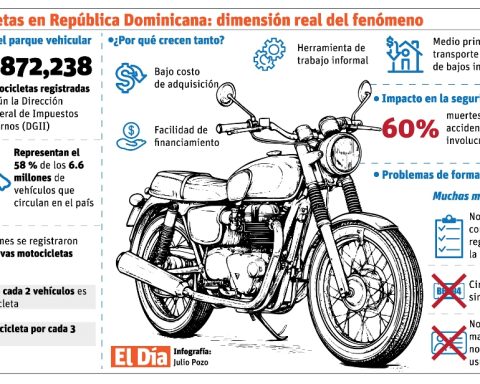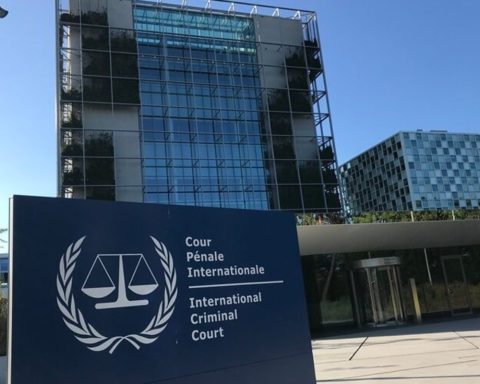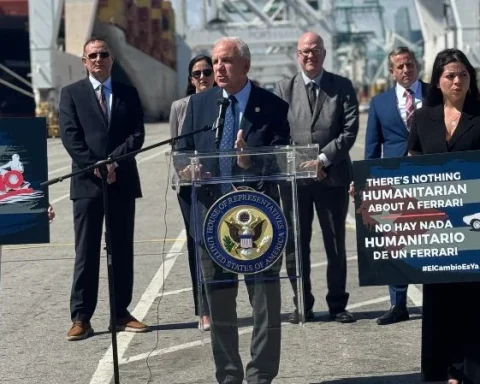The Argentine wine sector faces a new year with lower production, higher prices and rising exports, in a context in which sales abroad are partly conditioned to the resolution of the international crisis caused by the invasion of Russia to Ukraine, explained the president of the National Institute of Viticulture (INV), Martín Hinojosa.
In an interview with Télam, Hinojosa also highlighted the improvement for SMEs in the sector that meant the removal or reduction of withholdings and the increase in export refunds, and the obtaining of an IDB loan by the national State for US $ 40 million to face the water crisis and the commercialization problems of small producers.
Here are the main sections of the report:
-The Grape Harvest Festival returned in face-to-face format. What balance do they make?
–Everything went very well, but I would like to highlight a very important event, the awards ceremony for the winemaking career to more than 30 protagonists from all the provinces, producers and winemakers, which has already been installed on the Harvest agenda.
-How does the drop in estimated grape production for this harvest impact the sector?
–We have estimated a 13% drop in production, in relation to the previous harvest, which had already gone from normal to low; and compared to a normal harvest, the drop would be almost 17%; with very good quality, yes; but less quantity; and a smaller harvest generates pressure on prices, overheating.
-Does the rise in prices affect the entire sector in the same way?
–Prices are very diverse, depending on the grape and the area, but grapes destined for wine are experiencing a significant update in prices given the scarcity.
-To this is added that at present there are no large stocks like other years, right?
–Stocks are balanced; in a context of smaller harvest, it is necessary to see how the sale evolves.
We have estimated a 13% drop in production, in relation to the previous harvest, which had already gone from normal to low; and compared to a normal harvest, the drop would be almost 17%”
-In relation to consumption, which in 2021 fell a little compared to 2020, what do you expect for 2022?
–It is difficult to do futurology, the oscillations in volumes are generated by the sale of bulk wine, a somewhat unfaithful market, which moves by price, like a commodity; with a low price it sells a lot, and with a normal price it costs a little more to sell; Luckily, of every four bottles sold, three are in the domestic market; Argentina is one of the few countries that has such a strong internal market, an advantage because it allows small enterprises to enter the market, sell and locate small productions; On the other hand, the export is much more complex, this advantage allows you diversity, something that is not minor…
-Regarding the foreign market, last 2021 was a good year, in general…
–Yes, we have increased in volume and value everything that is fractionated wine, the product with the highest added value, because of the bottle, the capsule, the label and the workforce, but above all because of the brand; Entering a market with a brand is more difficult, but it is also more difficult to leave; that is why it is good to have increased not only 9% in volume but also 16% in value; we are selling more and more expensive.

-Can this be sustained in 2022?
–It’s difficult, the whole sector aspires to yes, but there are countries that are very aggressive commercially, you don’t compete with wineries from all over the world; and if they have to lower the price they do it strongly…
-How will the international situation affect the sector due to the Russian invasion of Ukraine?
–What we export to Russia is not significant in terms of volume, around 2 or 3%; but the situation is more complex, we have to see how much other wine-producing countries, such as Spain, Italy or Greece, export to it, and where that wine is going to end up; we have to see what happens, if it ends quickly or continues; and from there evaluate it; we must also take into account the increase in oil, which makes freight more expensive, if the conflict continues over time there will be consequences; if not, they will be smaller.
-Logistical problems like those of 2020, which added to the shortage of bottles…
–Yes, we are experiencing a very important logistics crisis; And to that was added the problem of the bottles, which was worldwide, aggravated locally by an accident; from the INV we proposed that the two windows could quickly be working; one of them, Cattorini, put into operation a new oven that processes 14 million bottles per month; and with the normalization of Verallia, the sector’s supply should be balanced.
After many years, the national government made the decision to remove the withholdings from SMEs and double their export refunds, something historic”
-From the sector in recent days there have been claims for lower withholdings and greater financing…
–After many years, the national government made the decision to remove the withholdings from SMEs and double their export refunds, something historic; it is good that the sector asks the national State for efforts, but it has to recognize that it has made them; a large part of the exporters stopped paying or paid half; viticulture is not only the only one of the regional economies to which the reimbursement was improved, but also to which a loan managed by the national State for US$ 40 million is granted; that speaks very well of how the public and private sectors work together; most of the objectives that are raised end up being specified; That’s why I believe in the link between the public and the private…
-Is one of the most important axes of Proviar II’s credit the issue of water?
–Yes, one of them is that axis; the water crisis is a reality, it is a need to address, like marketing, the other strong axis; We understand that the pandemic also gave us the reason that when more is sold and exported, stocks are balanced, the chain begins to function a little better and more fairly; and it is essential to be innovative, with new products and styles of wine; and for that it is necessary to have a program that encourages the private sector to make the necessary changes to adapt to changes in consumption.
-Among the new products is alcohol-free or low-alcohol wine?
–There is a tendency to consume wines with lower alcohol content throughout the world, something that does not go against traditional wines; consumers who want to try other styles of wines and the industry has to go along with it…
-Another issue that has been raised in recent weeks was the defense of the Patagonia brand…
–We are working together with Coviar, Bodegas de Argentina and the Ministry of Agriculture, Livestock and Fisheries of the Nation, to protect the brand and the GI (Geographical Indication); I think it will prosper because the winery that is using this brand will understand that the entire sector is demanding that it not do so…
-What is the analysis of the zero alcohol bill?
–Everyone in the sector promotes responsible consumption, nobody pretends otherwise; later it will be discussed how much tolerance is; it is a debate that has to take place responsibly, extremist positions are not good, a consensus must be reached on what is good for health and safety.
